
Exporting Ecuador quality with honesty
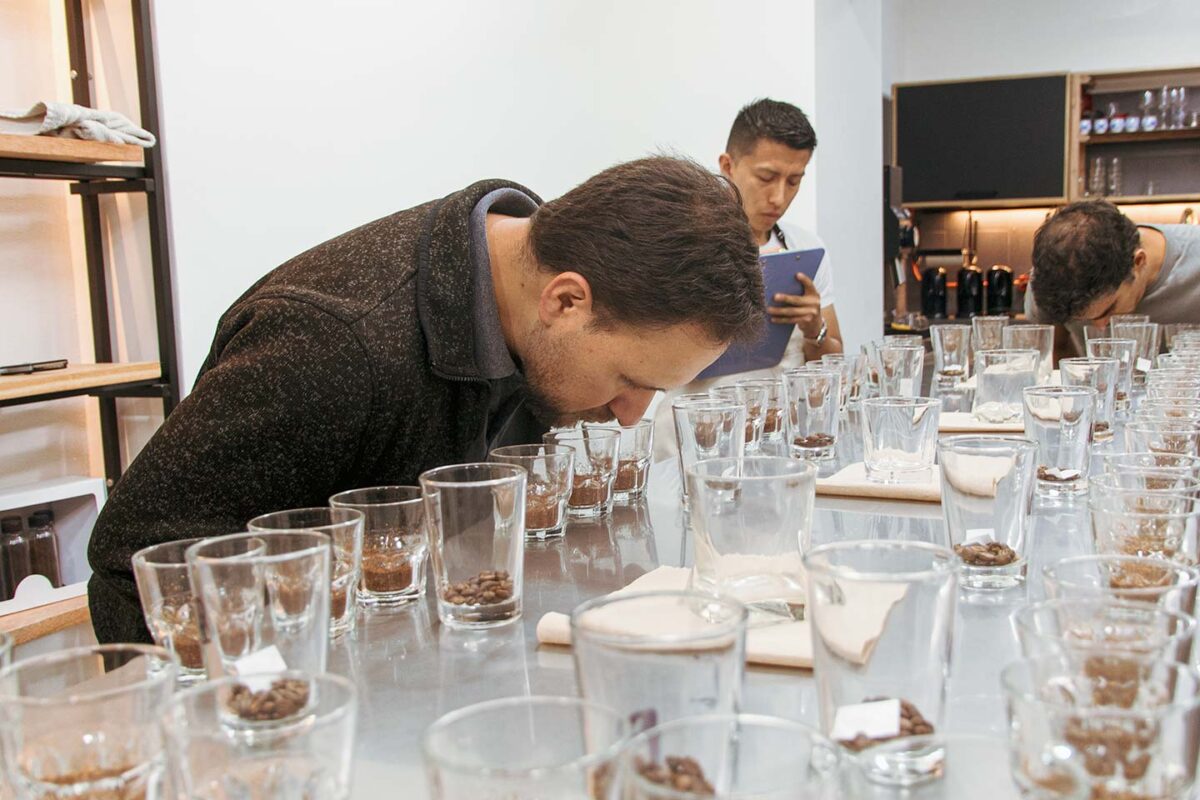
Sensum Trading, based in the northern province of Pichincha, is one of only a handful of trading companies in Ecuador dealing with specialty coffee. Launched in 2019, Sensum Trading (Sensum) currently works with around 50 coffee producers and unions in Pichincha and throughout the country, exporting green beans to companies and roasters, and dealing in the wholesale of house roasts.
Galo Morales, the founder of Sensum, comes with twenty years’ experience in the industry. Not only a savvy businessman, he has also built up a reputation as a coffee producer: In 2020 he was awarded third prize at Taza Dorada, Ecuador’s biggest coffee contest, and the following year he took the top prize.
But for Galo, it has never been about his own success. It has always been about building a system that can help other coffee producers succeed. We spoke to Galo to find out what it is that drives him to keep supporting others.
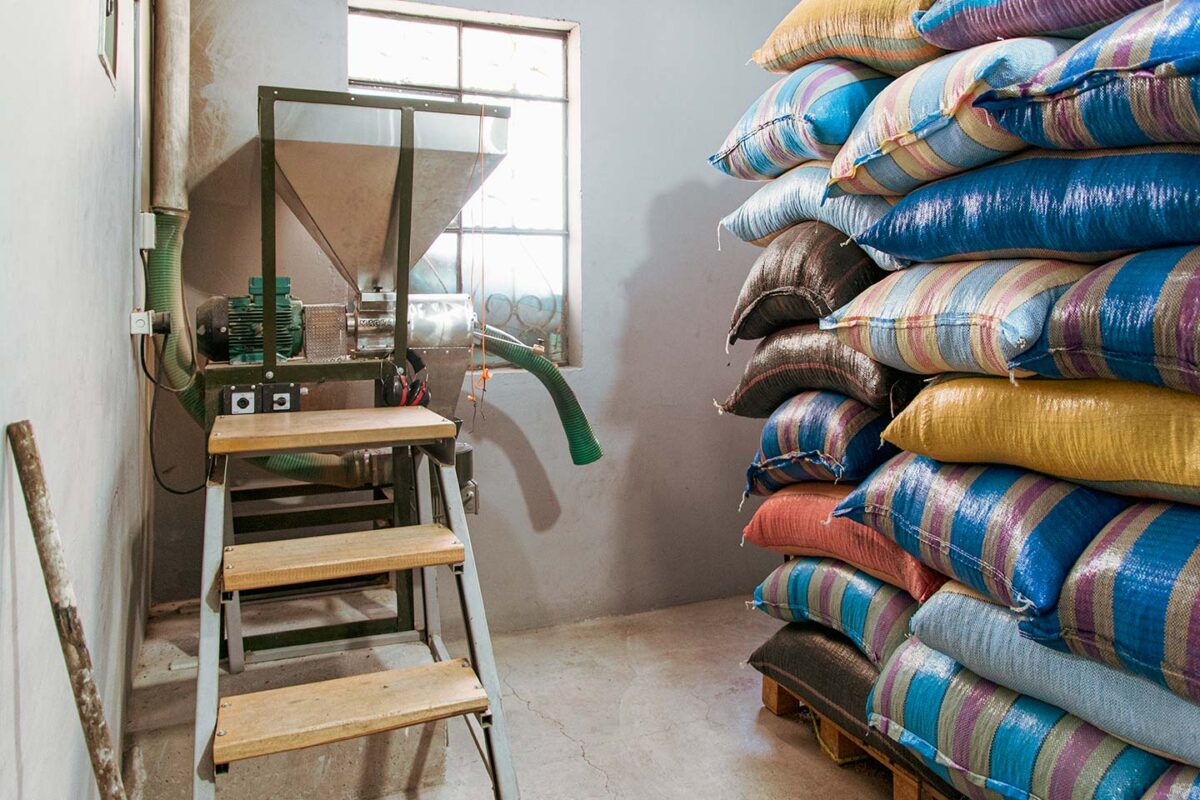
Good, honest business
Sensum lists five values that represent their work ethos: committed, customer-centric, traceability, fair trade, innovation. The export business is a highly-specialized industry. Yet Sensum maintains full transparency in all their operations, whether working with producers, roasters, importers or whoever. Sensum also takes advice from outside experts on areas such as marketing, logistics, customs, and finance, to try and keep costs at a minimum.
“But the reason we can buy beans at a higher price is not so much to do with our lower costs. It’s more to do with the fact that we want to be fair in all our dealings. That’s why we make the process transparent, so our customers know how much everything costs. It doesn’t cost that much to run an export trading company. And we’d rather use money to give producers a better price, because that’s going to motivate them to work even harder on production.”
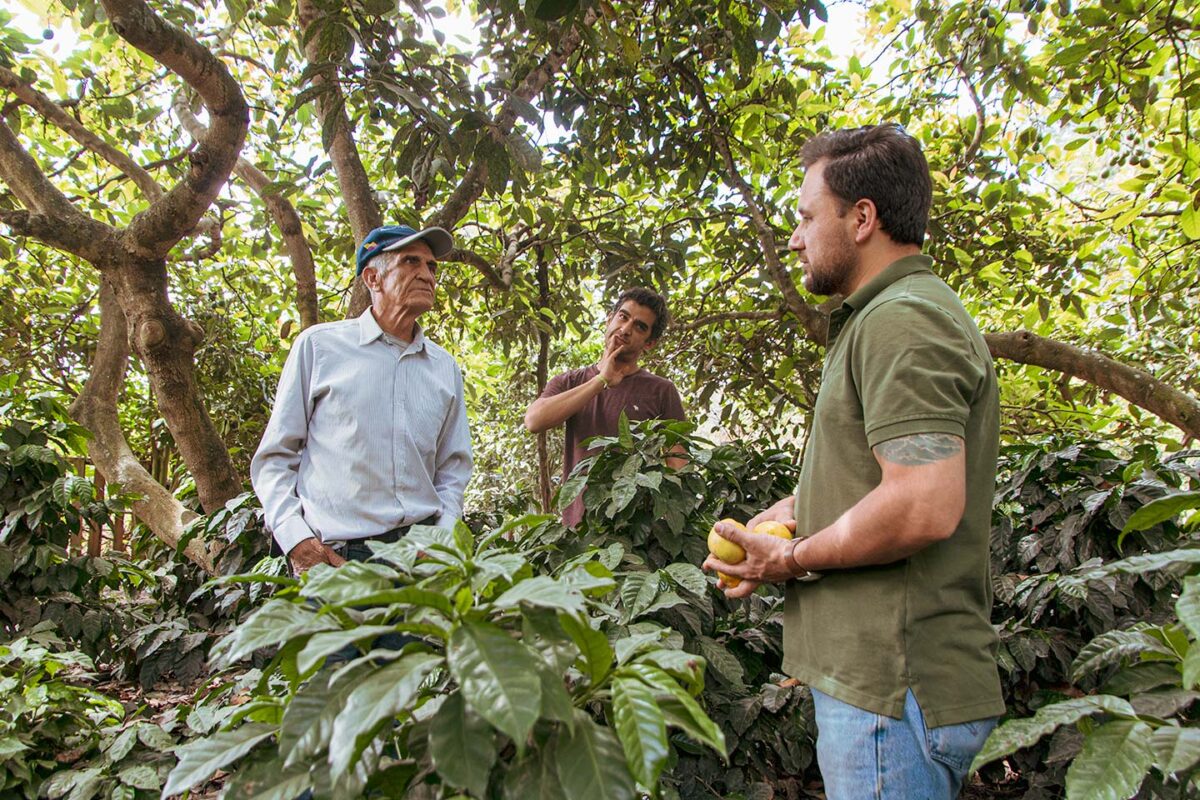
In the past, export trading companies rarely dealt directly with coffee roasters or coffee producers and this left the industry open to corruption, leading to poor-quality beans being sold at high prices. Now, Galo is ushering in a new era of transparency with Sensum. He is a regular visitor to farms and roasteries and encourages pricing negotiations. Galo believes that the more honest people are about the price they want to sell or buy the product at, the more likely they are to reach a good price that is fair for all.
“Sensum has been able to make a success of the business because we guarantee good quality, good price and good service. Even if a local roaster increases the price – because they’ve improved the quality – the customer will still continue to buy the product. And that makes us happy because it shows that they value and trust us.”

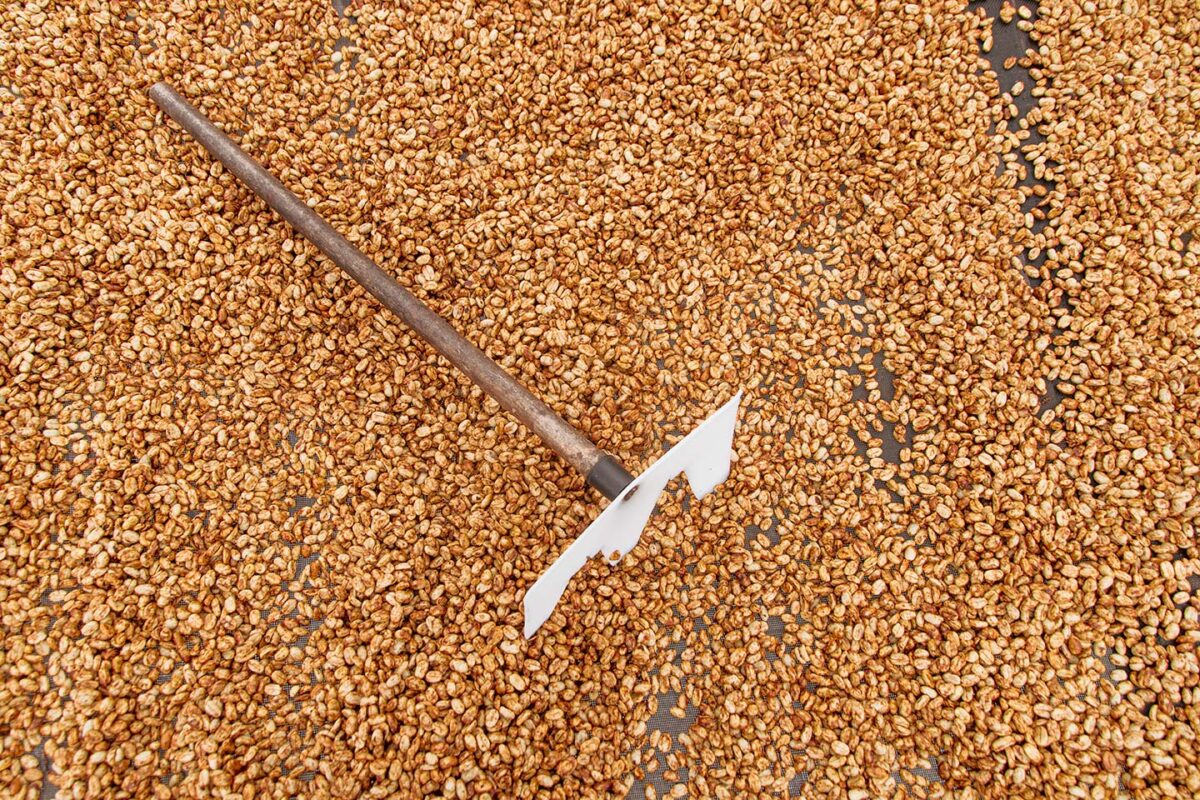
Building a reputation you can trust
Currently in his forties, Galo is the third generation of an 80-year-old coffee farm. He first began thinking about working in exports about twenty years ago, after he graduated high school and began working on the farm with his father. That year, they sold their harvest to the export company, but never received payment for their produce. Corruption in the industry was no longer something they had heard about, it was now something that was directly affecting Galo and his family’s livelihood.
Shortly afterwards, Galo went to university and majored in trade and business. Once he’d finished his studies, he continued to work on the farm with his family, while also taking on various positions: First as a quality coordinator for a major US trading company, and then later working in exporting at several other companies. Yet even during that time, Galo’s family farm suffered hardships due to business dealings. One year, production had to be put on hold because the export trading company’s lack of payment had left them short of funds. Another time, they did not get the compensation they were due from the local wholesalers responsible for exporting their coffee, because the importers had not paid the fees. For Galo, it was frustrating to be the victim of events he had little control over.
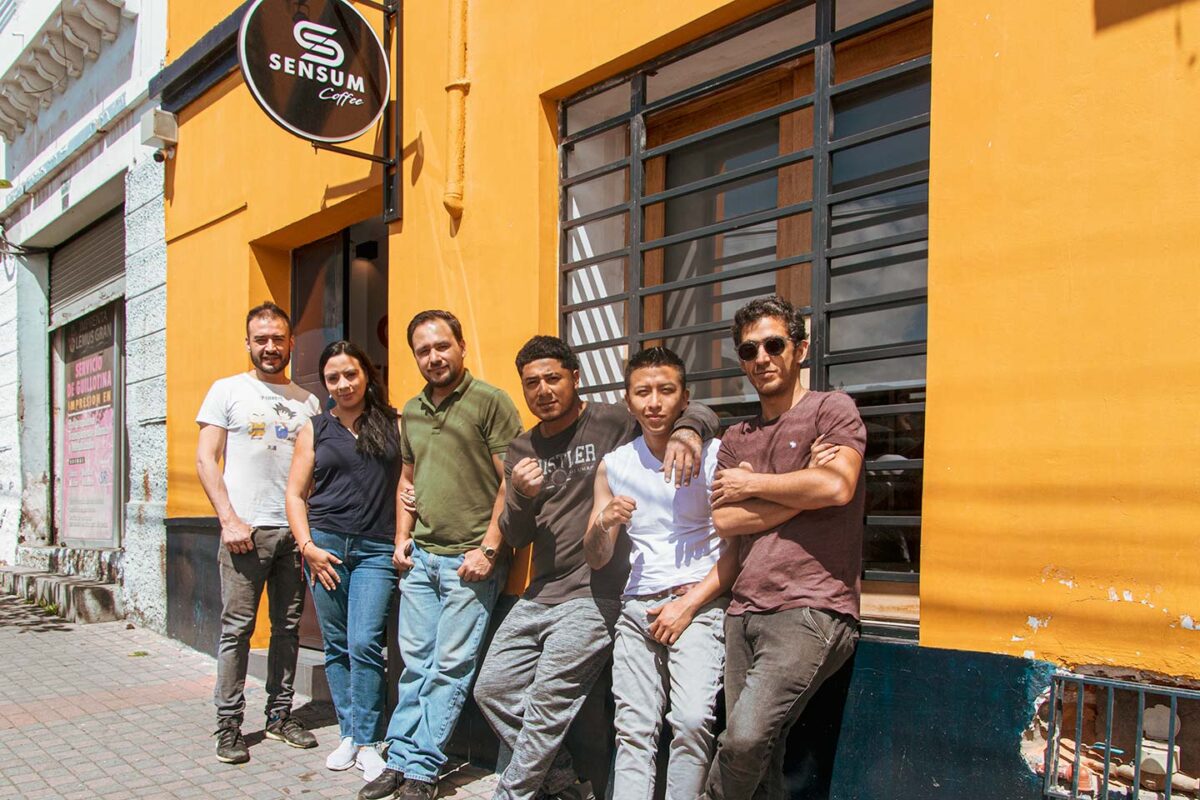
“I realized that for exporting to work, both the country and the company need to have a good reputation. Twenty years on and the situation hasn’t changed. The wholesalers and exporters were still not working together. And I saw that as an opportunity.”
Seizing that opportunity, Galo launched Sensum in 2019, making it a limited company in 2021. Instead of creating a new business model, Galo looked to other coffee producing countries for inspiration. What began as a business with only one client on the books, has now grown to six with inquiries coming in from more.
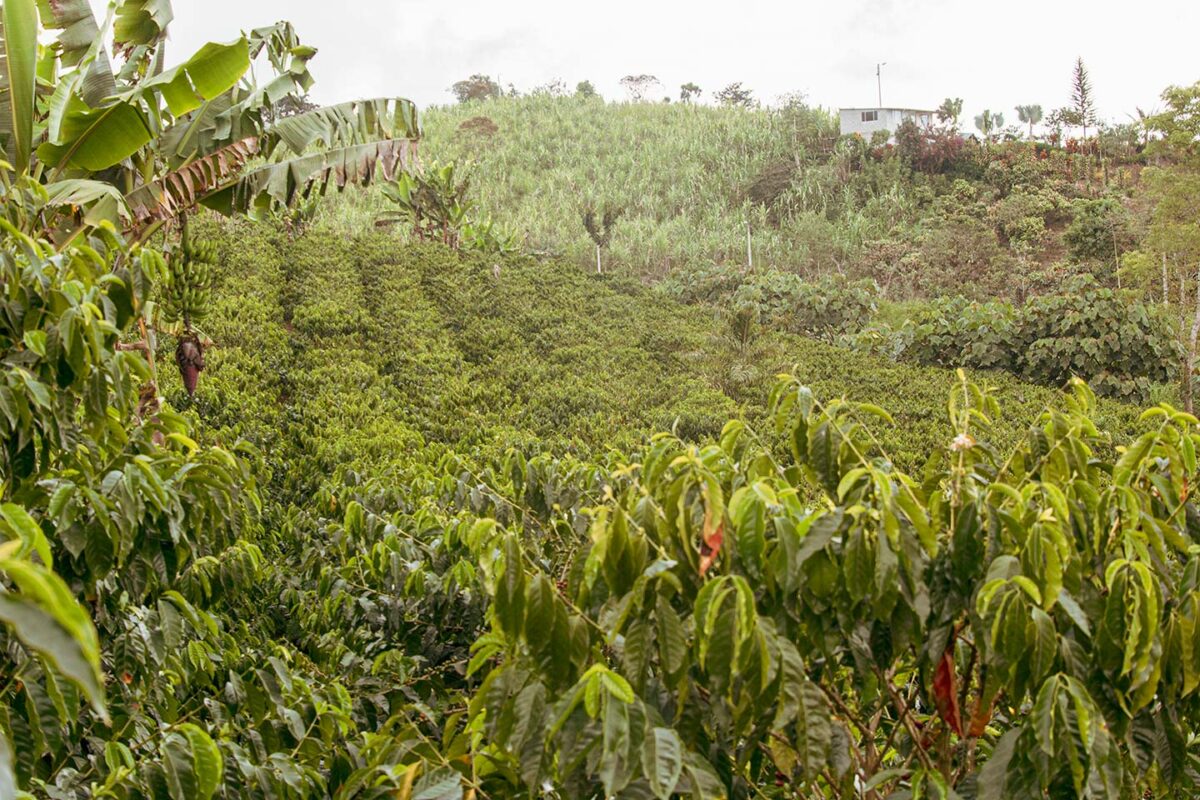
Invest more effort and less money
Coffee used to be Ecuador’s biggest export, with the combined yield of Arabica and Robusta coffee in the 1980s being 2 million 60 kg bags. But due to economic decline and an increase in production of bananas, prawns, fresh flowers, and other crops, 2021 production had fallen to 260,000, around 1/8 of previous figures and only 1% of global coffee production. But with the fertile soil of the Andes mountains and the difference in temperature from night to day, Ecuador does have the potential for specialty coffee production.
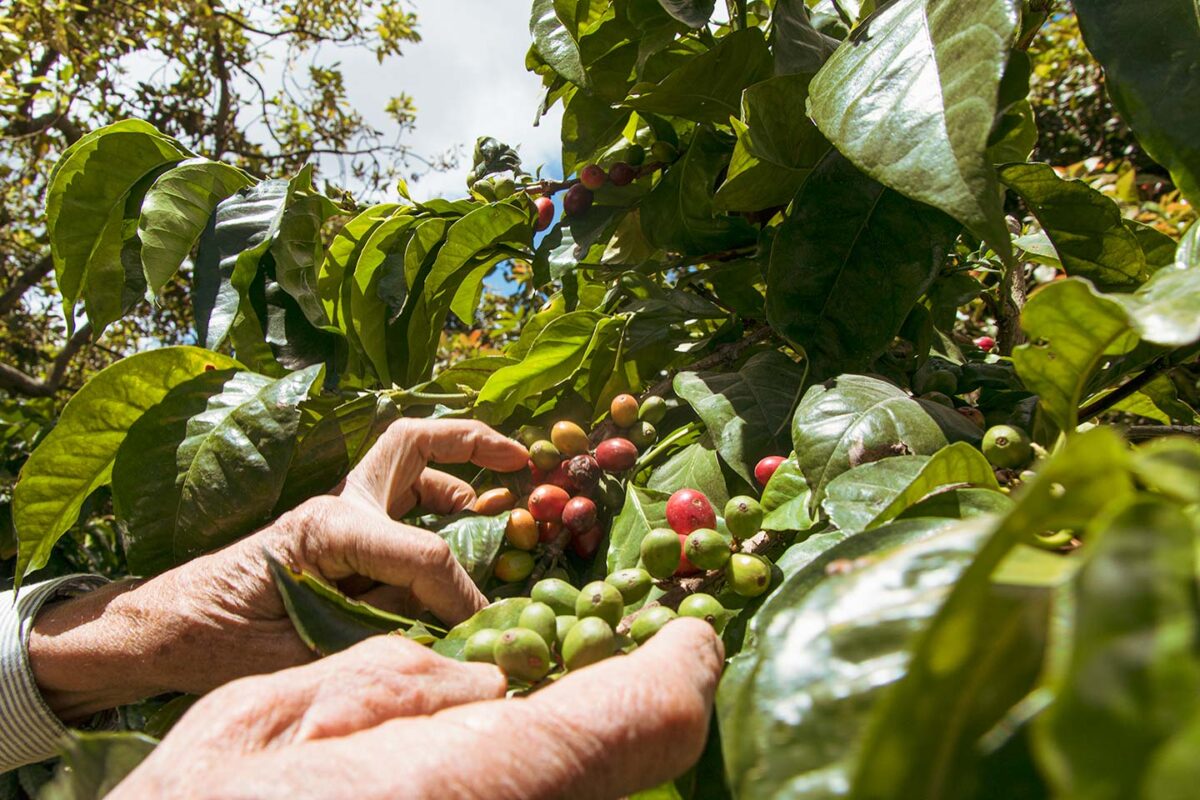
And when Galo launched Finca Cruz Loma in 2015 to focus on the production of specialty coffee, he was testing that potential first hand.
“Fina Cruz Loma came from my love of coffee and a wish to put to use the experience I’ve gained. I’m also someone who enjoys learning about things. Roasting, cupping, brewing, disease, pests, I’ve studied it all. If you want to be a producer, you need this knowledge. It’s something that I can use in my own production, and also share with other producers.”
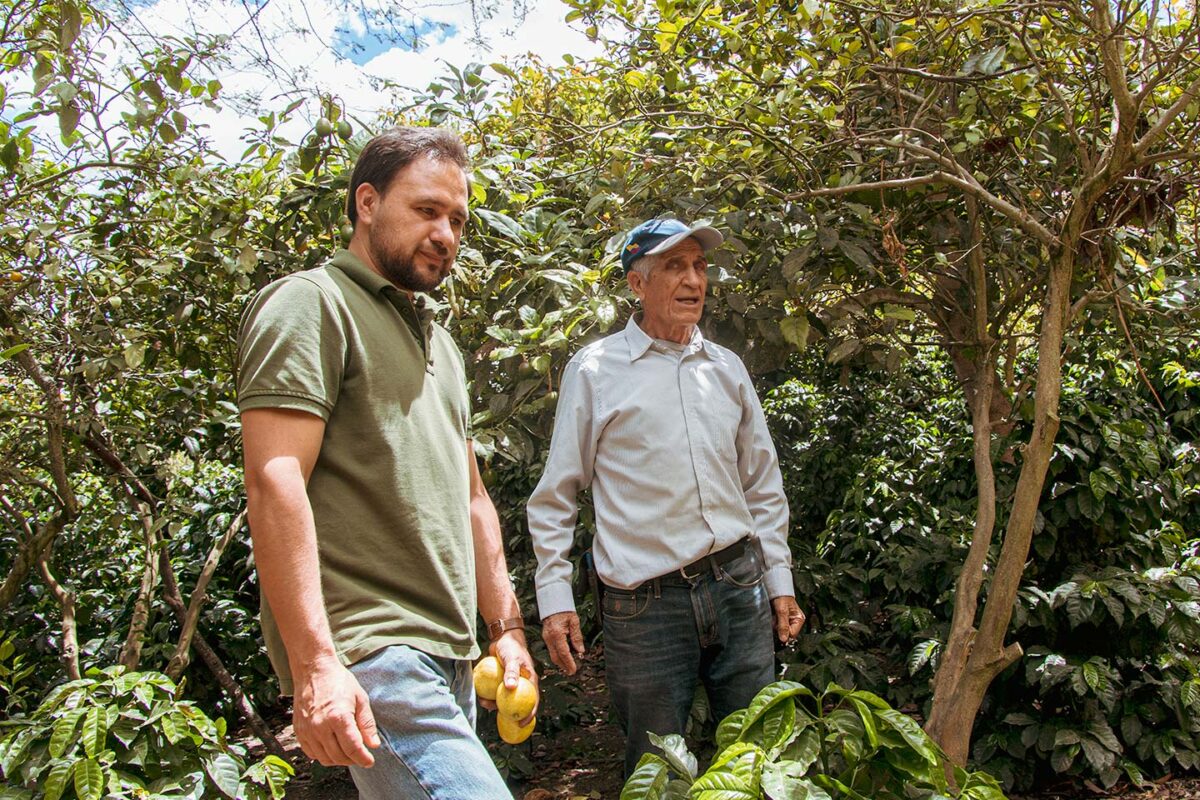
Not long after establishing his farm, Galo began making his mark on the industry, placing third in Taza Dorada in 2020 and being crowned champion the following year. Quickly gaining a reputation as a coffee producer, Galo’s coffee was priced at $100 dollars per pound weight, setting a new record for Ecuadorian coffee.
“I realized that the best way to inject some energy into the coffee industry in Ecuador, and the best way to show coffee producers how to be successful, was to make a success of myself. If I could show people how better my life was with coffee, then it would convince them too. That’s what I think every time I meet a producer who needs our support.
We need to create a structure where coffee producers can be successful with only a small initial investment. Success is not about how much money you invest in the beginning. It’s about how much time and effort you invest, in your business and in learning about coffee. The more effort you put in, the more you’ll get out of it. And that’s the kind of investment that will pay off in the future.”
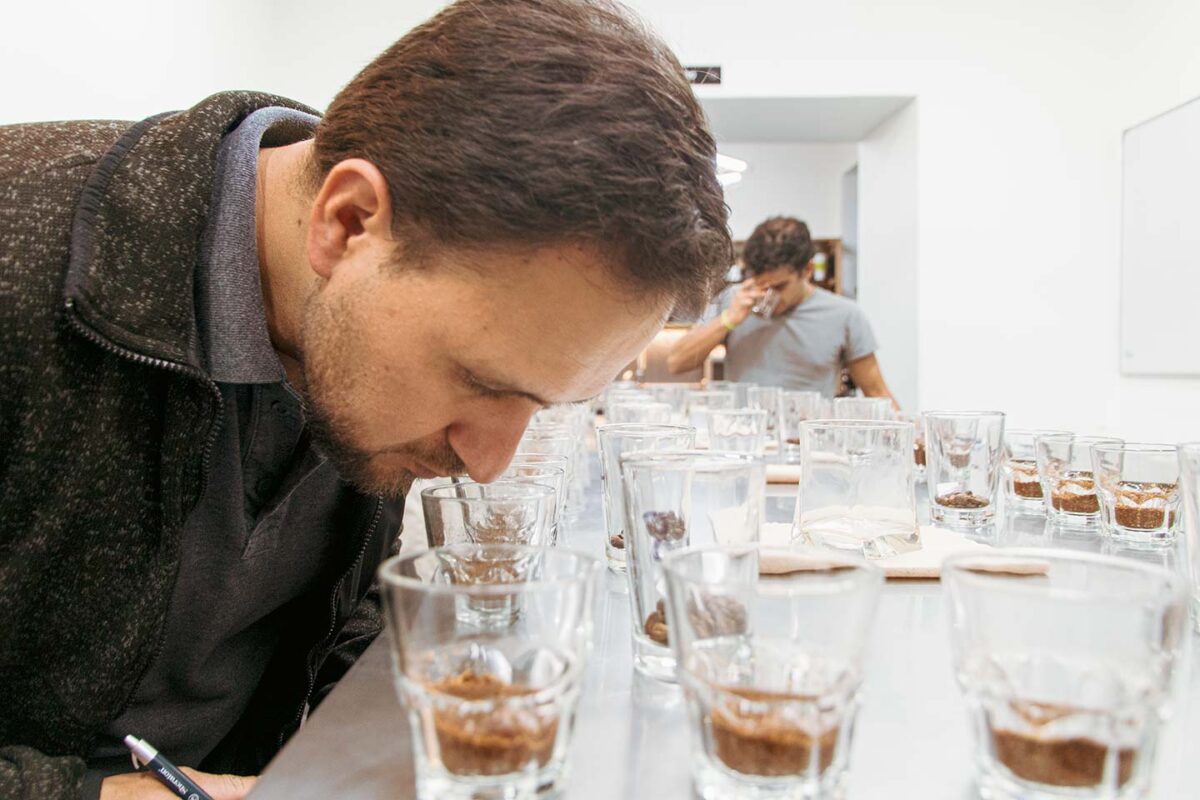
It’s unusual in Ecuador to be both a coffee producer and a coffee exporter. However, while they are both Galo’s projects, when it comes to Sensum, Finca Cruz Loma is treated the same as any other farm.
“Transparency is everything at Sensum. We judge farms on the quality of their coffee, that’s all. Whatever their business model, how much investment they have, who they know, it doesn’t matter. It’s all down to the cupping and the quality. And that’s the same whether I’ve just met them or I’ve known them for years, and of course, I want to be objective about my own produce too, and hold it to the highest standards of quality.”
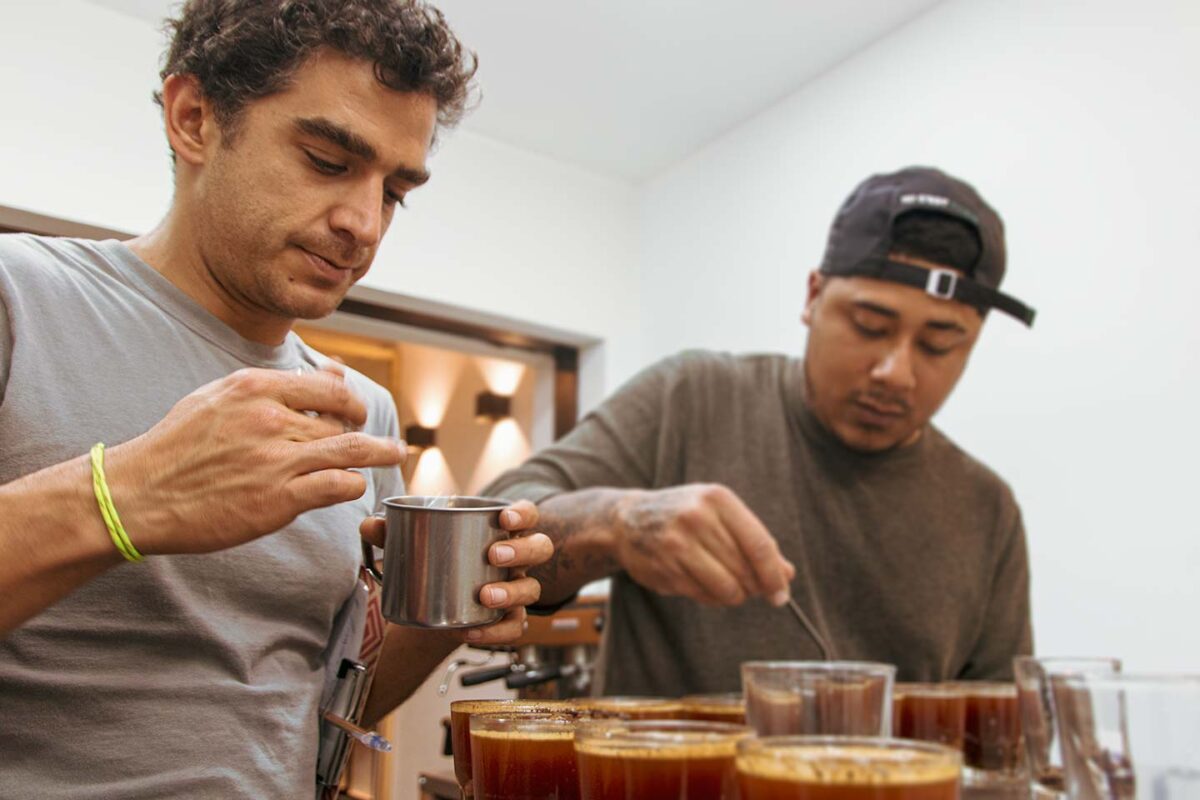
Local roaster Manalo Rosales is a huge supporter of Galo. When Manalo used to run a cafe, someone told him about this amazing person named Galo that he just had to meet. So he did. Impressed by Galo’s honesty and determination, he went from buying one to two bags a year, to ten bags a month.
“If you want specialty coffee in Ecuador, Galo is the person to see. Even in the capital Quito, there’s nowhere that’ll let you sample the coffee. But at Galo’s, we can always cup and sample the coffee to work out how much of what type we want to purchase. He’ll always answer any questions and let me sample the coffee again if I need to. Sometimes I’ll even ask Galo’s opinion on coffee I bought elsewhere. We’ll cup it together and see what we think.
Anyone who works with Galo will tell you how much his support means. I wouldn’t have a business if it weren’t for him, and we’ll keep bouncing ideas off each other and learning about the amazing world of coffee.”

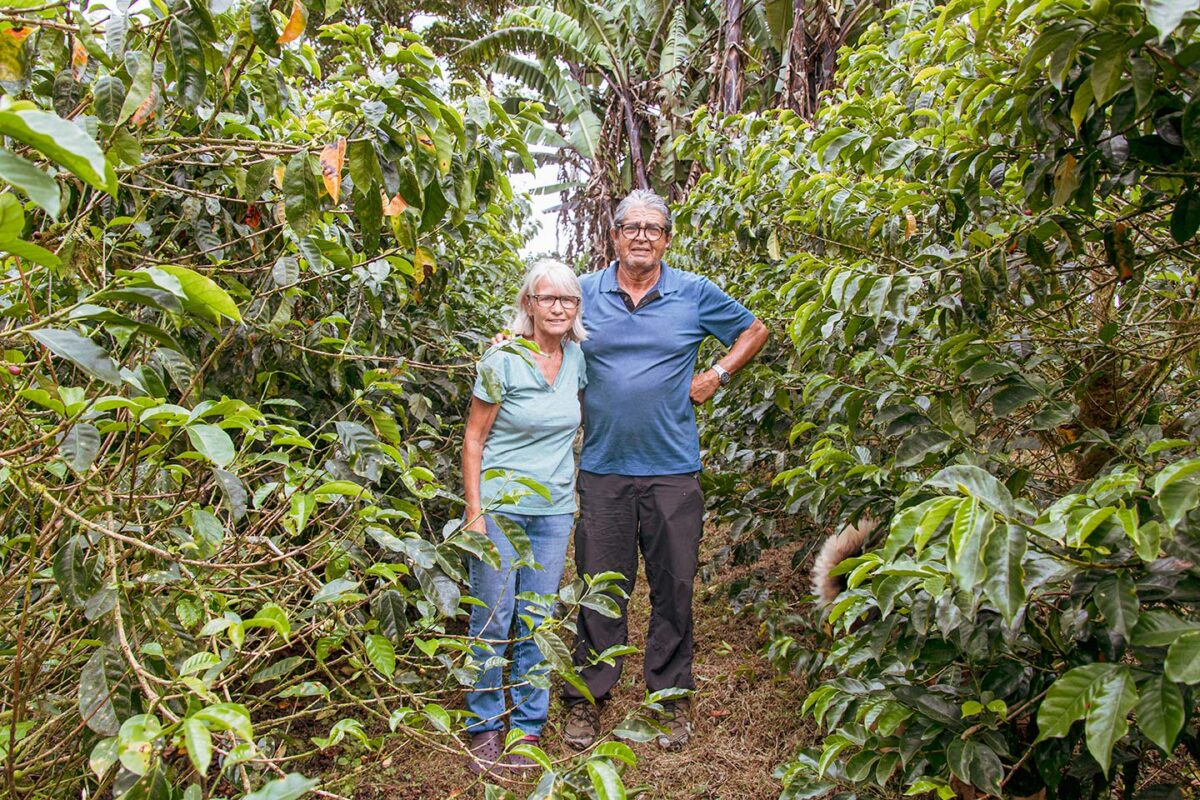
Quality before quantity
Sensum is changing the industry in Ecuador. Their emphasis on transparency and fair trade practices is resulting in better compensation for producers. And it’s having a knock-on effect for Sensum too.
“As word gets round about what we’re doing, more people start showing up, saying they want to work with us too. It’s like a magnet. And for many of them, we’re so different to what they’re used to that at first they don’t believe we’re for real.
The truth is, we’re more interested in increasing profits for the producers than increasing our own profits. Of course, we need to make a profit as a business, but our philosophy is based on creating a system that can help producers flourish. We’re only in our fourth year, but I’m confident that we’ll succeed.”
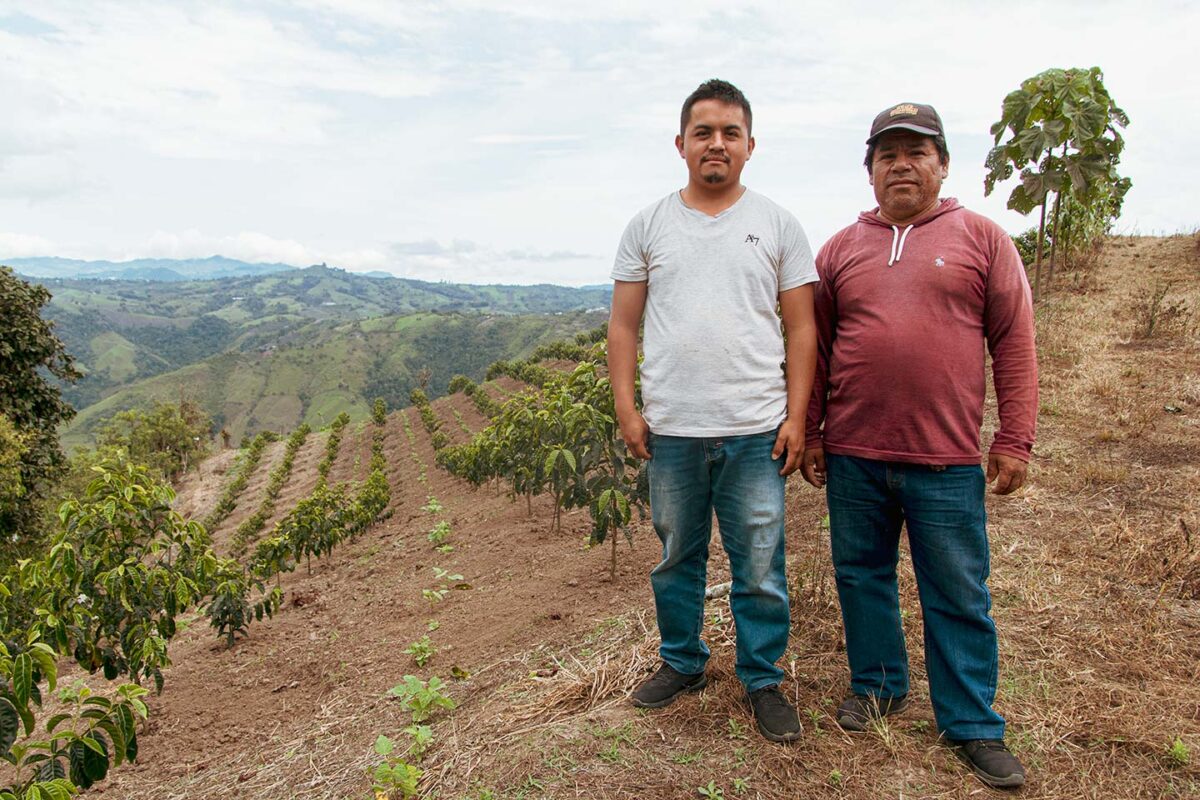
Galo’s business is also affecting the next generation of producers who are seeing that with farming good quality coffee they can get the independence they crave. One family spoke about their son heading off to the city to make a living. But after Galo offered his support, the son decided to stay and try his hand at coffee production. Now, he has a 2ha farm and is next year’s produce promises to be high quality coffee. “Hearing about other people’s success makes me happier than my own success,” says Galo.
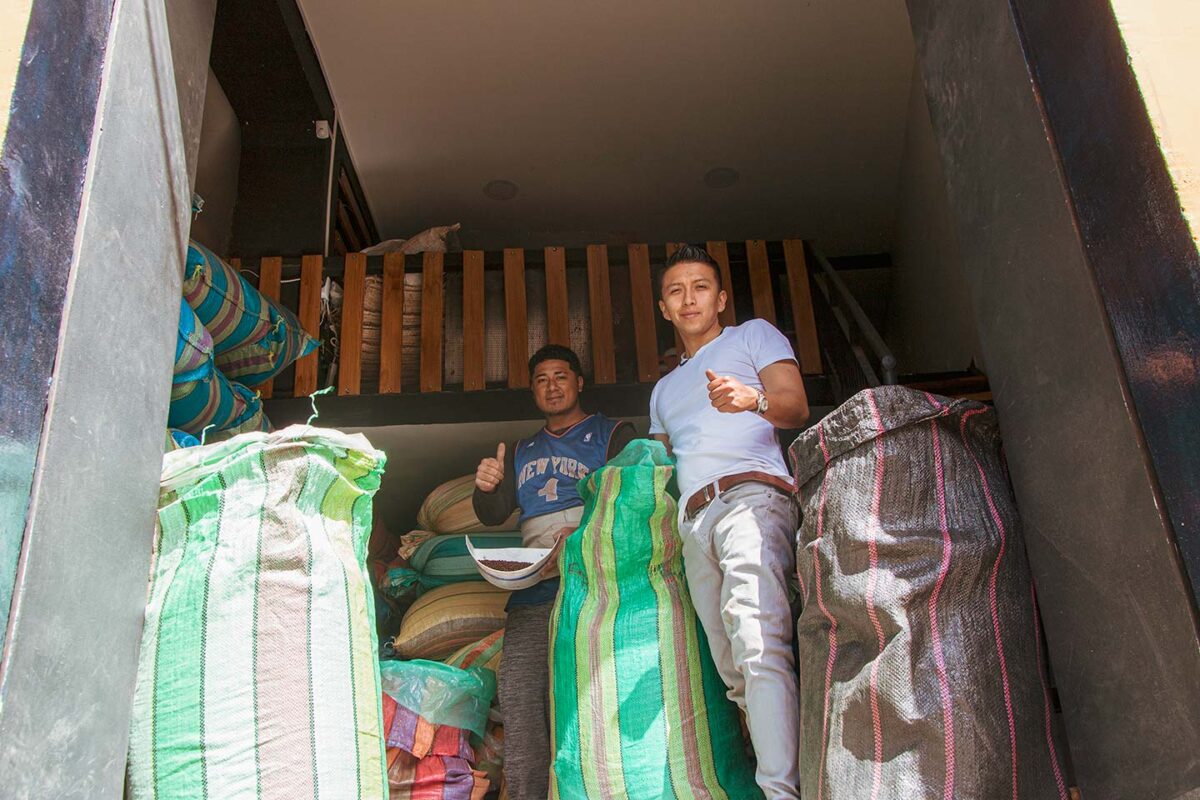
An extension of that selfless philosophy is Galo’s wish to use his export business as a way to raise awareness of Ecuadorian coffee. But not through quantity, through quality.
“We need to broaden the audience for Ecuadorian coffee, that’s the only way to succeed. And to do that we need to make sure roasters and exporters are included in the process. No matter how far someone lives, no matter how little they purchase, everybody should be treated with the same respect. And that’s something I’m always saying to the producers.
Whenever I meet a new customer, the first thing I want to know is what they want to achieve with Ecuadorian coffee. If we don’t share the same vision then we can’t work together. For me, it has to be about more than money.
Improving the global brand of Ecuadorian coffee is important to me, but more than that, I want consumers to trust and appreciate the quality of our coffee. That’s how they can truly enjoy Ecuadorian coffee.”
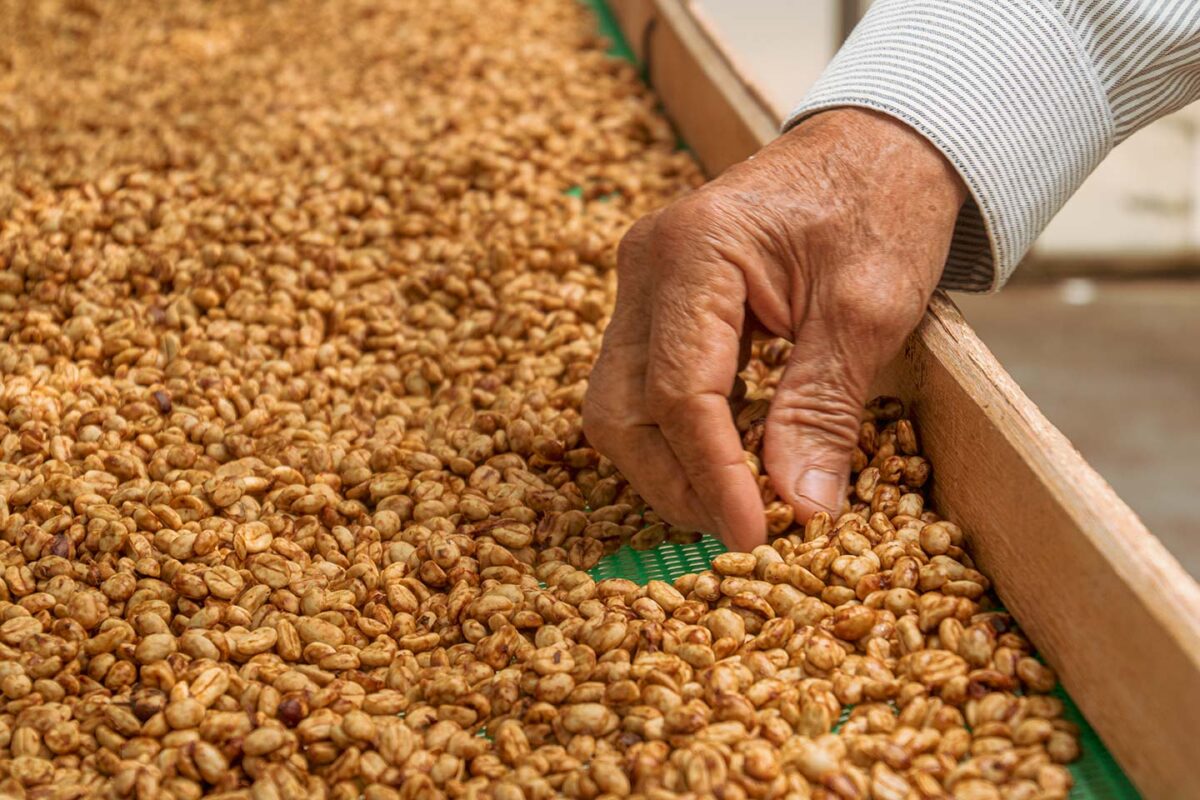
Sensum means “to sense” in Latin. The consumers drinking coffee, producers getting the support they need, or customers buying the beans they want. With Sensum, Galo brings to each of these coffee experiences a pure honesty that everyone who comes in contact with him cannot fail to sense.
Text: Takuya Takemoto








